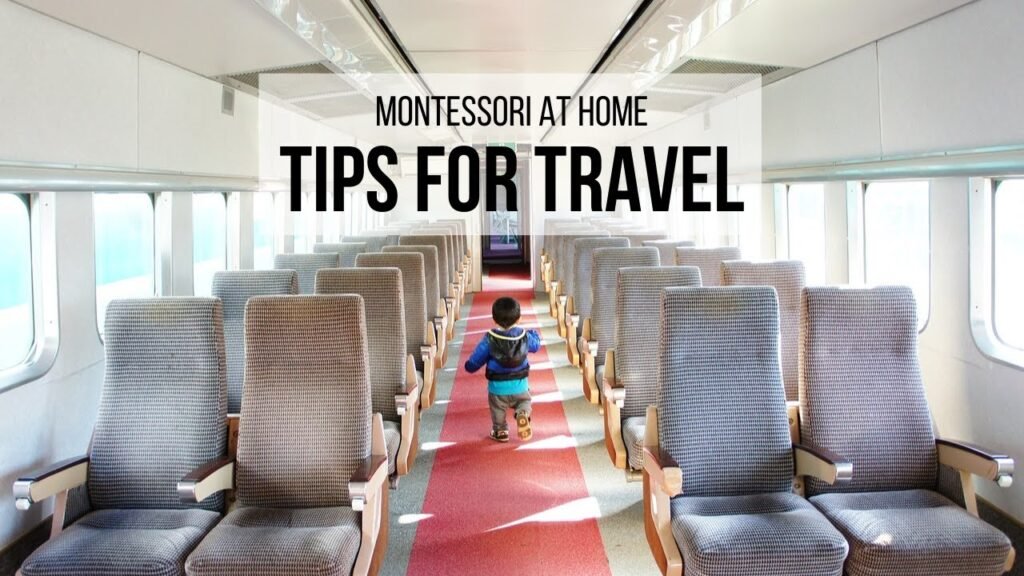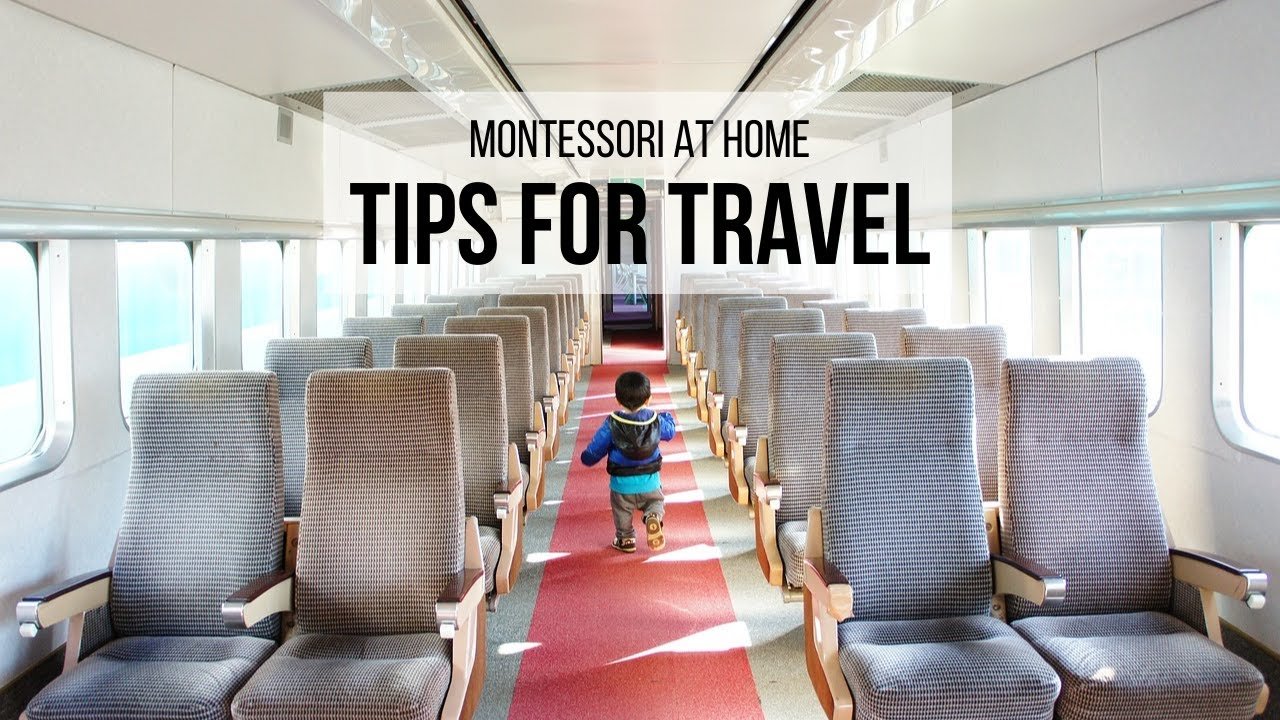Hi there! If you’re a parent who values Montessori principles and is wondering how to uphold them while traveling, you’ve come to the right place. In the video “MONTESSORI AT HOME: Tips for Travel” by Hapa Family, you’ll find insightful advice on maintaining Montessori practices on road trips, flights, train rides, hotel stays, and visits with non-Montessori relatives and friends. By focusing on independence, freedom within limits, and respecting your child’s needs, you can ensure that your little one experiences smooth and stress-free travels while staying true to Montessori values.
As a busy parent seeking practical tips for incorporating Montessori values into your travel plans, it’s essential to prioritize your child’s independence, freedom within boundaries, and respect for their unique needs. Whether you’re embarking on a short car trip or a lengthy road journey, remember to pack familiar toys, books, and snacks to keep your child engaged and content during the ride. By staying flexible, advocating for your child’s needs, and maintaining familiar routines, you can ensure a positive and enriching travel experience that aligns with your Montessori parenting philosophy. So relax, enjoy the journey, and embrace the adventure of traveling while upholding Montessori values!

Road Trips
When embarking on a road trip with your child, it’s essential to be prepared with their favorite books, toys, and snacks. These familiar items can provide comfort and entertainment during long car rides. While it may be tempting to resort to screen time for entertainment, it’s crucial to avoid screen time for children under the age of 2. Instead, encourage hands-on activities and real-world experiences to engage your child during the journey.
Utilize natural breaks during road trips to help children cope with being in car seats for extended periods. Plan stops at rest areas or parks where your child can stretch their legs, get some fresh air, and burn off energy. Providing opportunities for movement and exploration can make the car ride more enjoyable for both you and your child.
Air Travel
When preparing for air travel with your child, be sure to pack snacks and activities like books or toys to keep them engaged during the flight. Offer items such as chewing gum or a lollipop to help equalize your child’s ears during ascent and descent, which can help prevent discomfort from changes in air pressure. Just like during road trips, it’s crucial to avoid screen time for children under 2.
While it may be tempting to rely on electronic devices to keep your child occupied during the flight, try to limit screen time and instead focus on interactive games, books, or toys that encourage engagement and creativity. Providing a variety of activities can help make the flight more enjoyable for you and your child.
Train Journeys
Preparing for a train journey with your child requires planning ahead to keep them engaged during the trip. Pack snacks and activities to offer your child throughout the journey. Keep in mind the importance of providing items to help equalize your child’s ears during travel, such as chewing gum or a sippy cup.
Sticking to familiar routines for meals and bedtime can help your child feel more comfortable in an unfamiliar environment. Maintaining stability and predictability during train travel can prevent disruptions in your child’s routine and ensure a smoother journey for everyone.
Hotel Stays
When staying in a hotel with your child, it’s essential to stick to familiar routines for meals and bedtime. Maintaining consistency in your child’s daily schedule can help them feel secure and comfortable in a new environment. Pack your child’s favorite items for comfort, such as a special toy or blanket, to create a sense of familiarity in the hotel room.
Consider creating a Montessori-inspired play and sleep environment in the hotel room to encourage independence and exploration. Set up a designated play area with age-appropriate toys and activities to keep your child engaged during downtime. Providing a structured environment can help your child feel more at ease in the unfamiliar setting.
Visiting Family and Friends
When visiting non-Montessori family and friends, it’s essential to educate them about Montessori values to help them understand and support your parenting choices. Advocate for your child’s needs and feelings in unfamiliar environments to ensure their well-being and comfort. Be flexible with routines and expectations to accommodate the new surroundings.
While it may be challenging to maintain familiar routines in unfamiliar environments, remember that children are resilient and adaptable. Focus on creating positive and meaningful experiences for your child during visits with family and friends to foster a sense of connection and security.
Maintaining Independence
Maintaining independence while traveling with your child involves creating opportunities for freedom within limits. Encourage child-led activities and decision-making to promote autonomy and self-reliance. Provide opportunities for self-care and independence during travel to help your child develop essential life skills.
By focusing on providing independence and freedom within limits, you can support your child in gaining confidence and agency in new environments. Encouraging self-care and self-reliance during travel can help your child develop essential life skills and foster a sense of independence.
Avoiding Screen Time
Limiting screen time for children under 2 years old is crucial for their development and well-being. Instead of relying on electronic devices for entertainment during travel, engage your child in hands-on activities and real-world experiences. Use screen time sparingly as a last resort during travel to prevent overstimulation and promote interaction with the world around them.
Encouraging creativity and engagement through hands-on activities can help your child stay engaged and entertained during travel. Providing a variety of toys, books, and games can keep your child entertained without relying on screen time as the sole source of entertainment.
Supporting Familiar Routines
Sticking to familiar meal and bedtime routines can provide stability and predictability for your child during travel. Creating a sense of routine and structure can help your child feel more at ease in new environments and prevent disruptions in their daily schedule. Use familiar objects and rituals to help your child feel comfortable and secure in unfamiliar settings.
Maintaining familiar routines can help your child feel more grounded and secure during travel. Providing consistency and predictability in your child’s daily schedule can prevent stress and anxiety in unfamiliar environments and ensure a smoother travel experience for everyone involved.
Fostering Resilience in Children
Children are adaptable and resilient, capable of adjusting to new experiences and environments. Allow room for flexibility and spontaneity during travel to accommodate changes and unexpected situations. Focus on creating positive and meaningful experiences for children on the go to promote resilience and emotional well-being.
By fostering resilience in children, you can help them navigate new experiences with confidence and adaptability. Encourage independence and self-reliance while providing support and guidance to help your child cope with the challenges of travel.
Conclusion
Maintaining Montessori values while traveling involves a combination of planning, flexibility, and advocacy for your child’s needs. By incorporating Montessori principles into your travel routines, you can help your child feel secure, independent, and respected in any setting. Remember to focus on providing opportunities for independence, supporting familiar routines, and fostering resilience in your child as you travel together. With thoughtful preparation and a mindful approach, you can create positive and meaningful travel experiences that align with your Montessori values.

